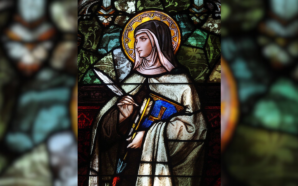25 August is Social Justice Sunday
At the beginning of August, we look forward to the Catholic Bishops’ Statement on Social Justice to be released at the end of the month. This year there are sadly a host of possible topics. We live in disturbed times when many social relationships are strained. Strained by wars and their effect on migrant communities, for example, by racial tension, by the gap between those who own homes and those who rent or are homeless and between the very wealthy and people who struggle, by wages and unemployment benefits that trail behind inflation, by domestic violence, sexual abuse and the social media that encourage them, and by political campaigns that exacerbate community tensions and inhibit the action needed to address climate change. All these areas of injustice and conflict and many others call on us Catholics to reflect and to pray. We are led deeply to desire a more just society in which people are bound together by love and mutual respect and live together in peace.
Christians naturally associate Jesus with peace – ‘gentle Jesus, meek and mild’ as Charles Wesley described him in a children’s hymn. We remember the vulnerable child Jesus lying in the manger attended by shepherds and farm animals. We also remember angels and Jesus himself greeting frightened people by wishing them peace. The Good News is a promise of peace.
Yet peace is elusive. As St Augustine said dismissively, everybody wants peace, but on their own terms. Nations go to war to restore peace or to impose it on their enemies. Perpetrators of domestic violence also often want peace based on the total submission of others. Peace is more than the absence of conflict.
The peace that Jesus promised was based on a vision of God who loved everyone and invited all, especially outsiders and despised people, into the future kingdom. He embodied God’s invitation in curing the sick and eating with people who lived scandalous lives, so overriding the religious culture of His times. This led to hostility from the religious and civil authorities who saw Him as a threat to an uneasy peace. He was killed to preserve a peace based on fear and exclusion.
Jesus also told his followers that to accept God’s peace would require them to also accept conflict and exclusion without retaliating. The Christian approach to peace is built on respect for the equal dignity of all people, especially the poorest and most excluded, and a commitment to them. The seriousness of the commitment to peace and its potential cost are evident in conscientious objectors who prefer to lose their own lives rather than to kill their fellow children of God.
Jesus’ life and death show that we should expect conflicts over many issues and violent behaviour in our own days. In the face of all these issues, we are called to be peacemakers. That will often cause us grief. But it is Christ’s way.
Fr Andrew Hamilton SJ writes for Jesuit Communications and Jesuit Social Services.








